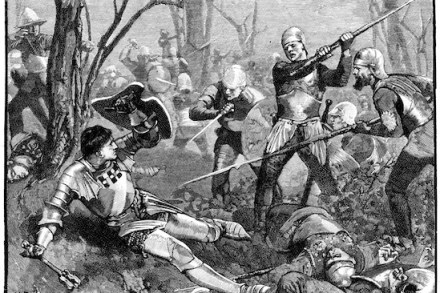The repression, anger and bloodshed of our own Game of Thrones
When I took up archery it was a relatively niche sport. Then Game of Thrones came along, and everyone wanted a longbow. Since the HBO series put the Wars of the Roses back on the map, we have had novels by Philippa Gregory and Conn Iggulden, and this autumn there will be a history of the wars by Dan Jones. Now comes the first of Toby Clements’s Kingmaker stories, set in the febrile age of mad King Henry VI of the House of Lancaster. Winter Pilgrims takes us to Lincoln, where Thomas, a 20-year-old monk and book illuminator, and Katherine, a young nun who has had enough of emptying her



















